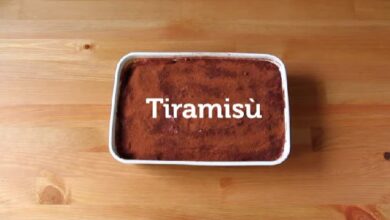Is Squid Halal
The dietary laws in Islam are intricate, encompassing various interpretations and opinions among scholars. One question that often arises is whether squid is halal, or permissible, for Muslims to consume. This article delves into the religious, cultural, and culinary aspects of this question, providing a comprehensive overview that will help you make an informed decision.
Introduction
Seafood is a diverse category of food that includes many different species, each with its unique taste and texture. Squid, a type of cephalopod, is popular in many cuisines around the world, known for its distinct flavor and versatile culinary applications. However, when it comes to Muslim dietary laws, the permissibility of eating squid can be a matter of debate. This article explores the various opinions on whether squid is halal, the reasons behind these views, and provides guidance on how to enjoy squid in a manner consistent with Islamic teachings.

Islamic Perspective on Squid
General Islamic Views
In general, most Islamic scholars agree that seafood is halal unless there is a specific prohibition against it in the Quran or Hadith. The Quran states that all marine animals are permissible for consumption (Quran 5:96). Based on this principle, squid is considered halal by many scholars and schools of thought. The Shafi’i, Maliki, and Hanbali schools, for instance, generally classify squid as halal, as they interpret the broad allowance for seafood to include squid and similar creatures.
Hanafi School of Thought
However, the Hanafi school, which is one of the major Islamic schools of thought, holds a different view. According to many Hanafi scholars, only fish are considered halal from the category of aquatic animals. Since squid does not fall under the classification of fish, it is often considered makruh (disliked) or even haram (forbidden) by some Hanafi interpretations. This is based on their interpretation of certain Quranic verses and Hadiths that emphasize the consumption of pure and clean foods.
Shia Perspective
For Shia Muslims, squid is generally considered halal. Shia scholars reference the broad permissions in the Quran and Hadith that do not specifically exclude squid. As long as the squid is not prepared with haram ingredients or in a manner that contravenes Islamic dietary laws, it is permissible.
Culinary and Health Considerations
Preparation and Cooking
Squid can be enjoyed in various ways, including grilling, frying, boiling, and as a key ingredient in dishes like calamari. When preparing squid, it is essential to ensure that all ingredients used are halal. This includes avoiding any alcohol-based marinades or non-halal oils. Squid’s taste can be quite different from other seafood, often described as slightly sweet with a chewy texture.
Health Concerns
Some scholars and health experts caution against consuming squid due to potential health risks, such as high levels of mercury or other toxins. It’s advisable to consume squid in moderation and to source it from reputable suppliers who adhere to safety standards.
Where to Buy Halal Squid
To ensure that the squid you purchase is halal, look for certification from recognized halal authorities. Many halal grocery stores and some mainstream supermarkets offer halal-certified seafood. Online retailers can also be a good source, often providing detailed information about their halal certification processes.
Frequently Asked Questions
Can all Muslims eat squid?
Yes, most Muslims can eat squid as it is generally considered halal by the majority of Sunni scholars. However, some schools, like the Hanafi, view it as makruh (discouraged), and Shia scholars might have different opinions.
Why do some Muslims avoid eating squid?
Some Muslims, particularly those following the Hanafi school of thought, avoid eating squid because they interpret Islamic dietary laws to allow only fish with scales.
Is there a difference between halal and makruh regarding seafood?
Yes, halal means permissible, while makruh means discouraged but not forbidden. In the context of seafood, something like squid might be halal according to some scholars and makruh according to others.
What makes squid halal in Islam?
Squid is considered halal by many scholars because of Quranic verses and Hadith that broadly permit seafood. For instance, a hadith states, “Its water is pure and its dead are lawful,” referring to sea animals.
Does the method of cooking affect the halal status of squid?
No, the method of cooking does not affect the halal status of squid as long as the ingredients used are halal. Squid remains halal regardless of whether it is fried, grilled, or cooked in any other way.
Are there specific Islamic schools that strictly permit or forbid squid?
Yes, most Sunni schools (Shafi’i, Maliki, Hanbali) permit squid, while the Hanafi school discourages it. Shia scholars often have different interpretations, but many permit it.
Is there any mention of squid in the Quran or Hadith?
While squid is not specifically mentioned, the Quran and Hadith contain general statements about the permissibility of seafood. For instance, Quran 5:96 says, “Lawful to you is the game from the sea and its food.”
How do scholars determine the halal status of sea animals like squid?
Scholars determine the halal status based on interpretations of religious texts, including the Quran and Hadith, and by following the principles set by different Islamic schools of thought.
Can squid be eaten raw, like in sushi?
Yes, squid can be eaten raw in dishes like sushi, as long as it is prepared hygienically and follows other halal dietary guidelines.
Are there any health concerns associated with eating squid?
While squid is generally safe to eat, some people might have allergies to it. Additionally, like all seafood, it should be fresh and properly cooked to avoid foodborne illnesses.
Is squid considered a fish in Islamic dietary laws?
No, squid is not considered a fish. This classification affects its halal status in the Hanafi school, which only considers fish with scales as halal.
Can squid be included in a halal diet for health reasons?
Yes, squid is a good source of protein and other nutrients, making it a healthy addition to a halal diet when consumed in moderation.
Where can Muslims buy halal squid?
Muslims can buy halal squid at most seafood markets, grocery stores with a good seafood section, or specialized halal meat and seafood shops.
How should Muslims handle and prepare squid to maintain its halal status?
Muslims should ensure that the squid is fresh, clean, and free from contamination with haram substances. It should be prepared in a clean environment using halal utensils.
Are there any popular dishes featuring squid that are considered halal?
Yes, many popular dishes like calamari, squid ink pasta, and grilled squid are considered halal as long as all ingredients used are permissible in Islam.
Conclusion
In conclusion, the question of whether squid is halal is influenced by various interpretations within the Muslim community. While the majority of Islamic scholars deem squid halal, particularly within the Shafi’i, Maliki, and Hanbali schools, it remains a contentious issue in the Hanafi school. Therefore, it’s crucial for individuals to consult their local religious authorities and consider their own beliefs and preferences when deciding whether to include squid in their diet.
Read also: Is Calamari Halal





